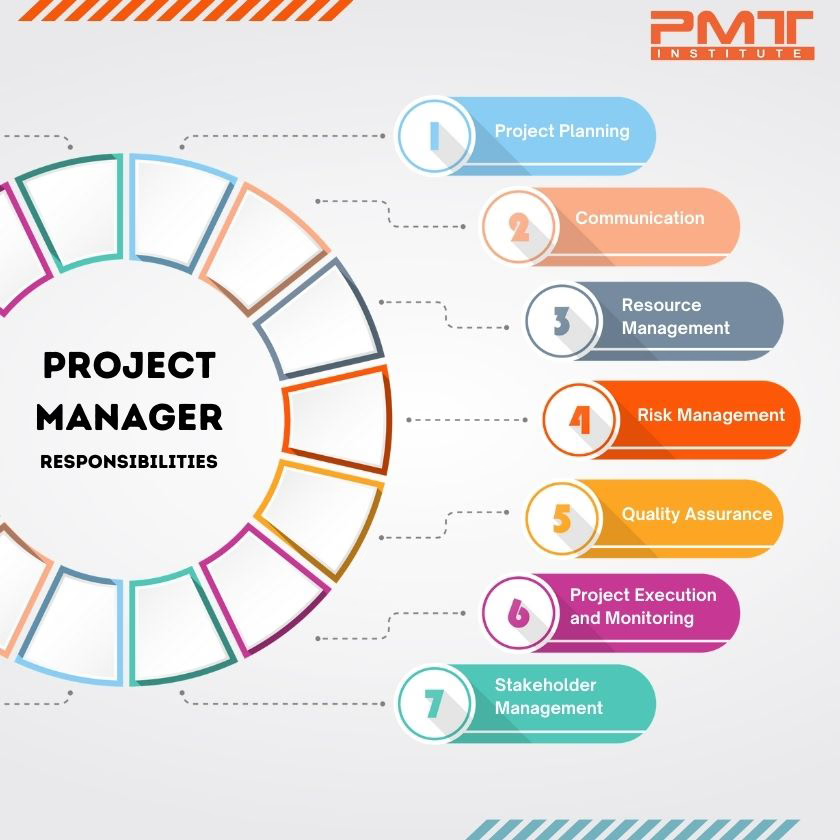Assistant Project Manager: Definition, Responsibilities, Skills, Education, and Experience
Published:
Updated:

An Assistance Project Manager or APM is a professional who works alongside a Project Manager to support the planning, execution, monitoring, and closure of projects. An APM collaborates with the Project Manager to ensure that the project is completed on time, within budget, and according to the project plan.
The specific responsibilities of an Assistant Project Manager vary depending on the industry and the organization. The main role of an Assistant Project Manager is to support the Project Manager in managing and executing projects effectively. There are common duties of the APM. These common duties include supporting the development of project plans and schedules, coordinating project resources such as people, materials, and equipment, and tracking project progress while reporting on the status to stakeholders.
An effective assistant project manager possesses a wide range of skills. APMs must understand project management methodologies, tools, and techniques to support the Project Manager in managing the project effectively. Effective communication skills are crucial, as the Assistant Project Manager must be able to communicate project updates, issues, and risks to team members, stakeholders, and the Project Manager.
The education requirements for an Assistant Project Manager are different depending on the company and the field. An Assistant Project Manager must have a bachelor's degree in a relevant field such as project management, business administration, engineering, or construction management. A bachelor's degree in a relevant field is often preferred for an Assistant Project Manager role, as equivalent work experience, relevant certifications, and training programs are valuable for candidates to have.
What Is an Assistance Project Manager?
An Assistant Project Manager (APM) is a professional who assists a Project Manager (PM) in the day-to-day management of a project. The APM's job is to help the PM with different parts of the project, like planning, scheduling, communicating, and managing stakeholders. The exact duties of an APM are subject to change based on the project's size, complexity, and management style. The APM is a very important part of the project management team, making a big difference in the project's success. It helps make sure the project goes well by giving the project manager help and letting them focus on strategic tasks.
What Are the Responsibilities of An Assistant Project Manager?
Listed below are the responsibilities of an assistant project manager.
- Project Planning: Assist the PM in creating and updating project plans, schedules, budgets, and timelines. It helps in identifying project milestones and defining the project's scope.
- Communication: Ensure effective communication between the project team members, stakeholders, and clients. An APM is responsible for scheduling and conducting meetings, taking minutes, and disseminating project-related information.
- Resource Management:Assist the PM in resource allocation and management. It helps in identifying resource requirements, managing resource conflicts, and ensuring that resources are utilized efficiently.
- Risk Management:Identity, assess, and manage project risks, and assist in developing risk management strategies. Assistant Project Manager helps in the creation and maintenance of risk logs.
- Project Execution and Monitoring:Assist in the execution of project activities, monitor project progress, and report on the status of the project to the PM. Additionally, an APM helps in tracking project deliverables, managing project budgets, and reviewing project documentation.
- Quality Assurance: Ensure that project deliverables meet the required quality standards by assisting in the development of quality assurance plans, conducting quality audits, and identifying and resolving quality issues.
- Stakeholder Management:Assist the PM in managing stakeholders, including identifying stakeholders, managing their expectations, and maintaining stakeholder engagement throughout the project lifecycle.

What Skills Should the Assistant Project Manager Have?
Listed below are the skills of an assistant project manager.
- Project Management Skills: An APM must have a good understanding of project management principles, methodologies, and tools. An assistant project manager must be familiar with project planning, scheduling, risk management, and quality management.
- Communication Skills: Excellent communication skills are crucial for an APM. An assistant project manager must be able to communicate effectively with team members, stakeholders, clients, and vendors. It includes verbal and written communication, active listening, and conflict resolution. Additionally, effective communications management is essential for ensuring that all stakeholders are aligned with the project goals.
- Time Management Skills: An APM must have strong time management skills to ensure that project tasks are completed on time. It includes prioritizing tasks, managing deadlines, and multitasking.
- Analytical Skills:An APM must be able to analyze project data, identify patterns, and draw conclusions. An APM must be able to use analytical tools and techniques to assist the PM in decision-making.
- Leadership Skills:An APM is able to lead and motivate team members, foster a positive team environment, and resolve conflicts. Assistant Project Manager must be able to delegate tasks and responsibilities to team members and manage their performance.
- Technical Skills: An APM must have a good understanding of the technical aspects of the project. It includes familiarity with software and technology used in the project, understanding of technical requirements and constraints, and the ability to troubleshoot technical issues.
- Organizational Skills: An APM must be highly organized, able to manage multiple tasks simultaneously, and maintain accurate records and documentation. The assistant must be able to create and maintain project plans, schedules, and budgets.

What Is the Educational Requirement of An Assistant Project Manager?
The educational requirements for an Assistant Project Manager (APM) vary depending on the organization, industry, and project type. APM positions require a minimum of a bachelor's degree in a relevant field such as engineering, business, or construction management. However, some organizations accept candidates with relevant work experience in lieu of a degree. APMs benefit from having a certification in project management, such as the Project Management Professional (PMP) certification offered by the Project Management Institute (PMI) in addition to a degree. A PMP certification is able to demonstrate to employers that an APM has a solid understanding of project management principles, methodologies, and best practices.
Furthermore, APMs must have relevant work experience in project management or a related field. It includes experience in project coordination, scheduling, resource management, risk management, and stakeholder management. Moreover, APMs benefit as well from having experience in a specific industry, such as construction, IT, or healthcare.
What Necessary Experience Does Assistant Project Manager Must Have?
The necessary experience required for an Assistant Project Manager (APM) varies depending on the industry and organization. Generally, APMs must have some relevant work experience in project management or a related field, although the amount of experience required varies. Some organizations require APMs to have at least two to three years of experience working in a project management role, while others accept candidates with less experience or provide on-the-job training. APMs benefit as well from having experience in a specific industry or sector, such as construction, IT, or healthcare, in addition to project management experience.
What Is the Role of The Assistance Project Manager in The Projects?
The role of an Assistant Project Manager (APM) is to help the Project Manager (PM) with all aspects of planning, executing, and keeping track of the project. The APM is very important because it helps the PM and makes sure that the project is completed successfully. An APM works closely with the project manager (PM) to make sure the project is finished on time, on budget, and to the quality standards that were set.
One of the primary responsibilities of an APM is to assist with project planning. It helps the project manager set project goals, make project schedules, and figure out project risks and limitations. The APM helps as well the PM manage resources. It helps the PM assign resources to project tasks, keep track of how those resources are used, and manage project budgets. The APM is in charge of coordinating project tasks and making sure that everyone on the project team knows their roles and deadlines.
An APM facilitates communication among team members and stakeholders and monitors project progress to identify and address any issues that arise. The APM works as well with the PM to identify potential project risks and develop mitigation strategies to manage them. The APM plays a role in ensuring that project deliverables meet the required quality standards.
Does the Assistant Project Manager Control the Quality Management of A Project?
The responsibility of APM is to help ensure that project deliverables meet the required quality standards. However, the APM is in charge of coordinating project tasks and making sure that everyone on the project team knows their roles and deadlines. The APM works closely with the PM to track the progress of the project, check the quality, and deal with any quality problems that come up. Moreover, quality management involves ensuring that the project's deliverables meet the specified quality standards and that the project is completed according to the project plan, timeline, and budget. It is significant to remember that an Assistant Project Manager's roles and responsibilities change depending on the organization and the project.
What Are the Challenges that Assistant Project Managers Faced?
The job of an Assistant Project Manager (APM) is difficult and time-consuming. APMs face many challenges in their jobs, such as not having enough power to make decisions, juggling different priorities, dealing with conflict, communication issues, a lack of experience, managing the scope of a project, and keeping track of time. APMs do not have enough power to make important decisions, which makes it hard to move a project forward. Furthermore, assistants have to keep track of different priorities, like the project's scope, timeline, and budget, while making sure the quality of the project stays high.
Moreover, APMs have to solve disagreements between project team members or stakeholders, which is difficult and takes time. Miscommunication occurs between project team members, leading to misunderstandings and delays. Some APMs do not have enough experience in some parts of project management, which causes mistakes and waste time.
APM has to make sure that the project stays on track and stays within its budget, which are able to be hard when new requirements or changes are made. APMs need to be good at managing their time, meeting project deadlines, and keeping the quality of the project up. Shortly, an APM has a tough job that requires strong communication, problem-solving, and time-management skills to deal with the many problems that come up during the lifecycle of a project.
How Does the Assistant Project Manager Communicate with The Team?
Effective communication is crucial for the success of any project, and the Assistant Project Manager (APM) plays a vital role in facilitating communication between the project team members. There are various ways in which an APM communicates with the team. One of the most common ways is by scheduling regular team meetings to discuss project progress, identify issues, and plan the next steps. Meetings are conducted in person, virtually, or a combination of both, depending on the team's location and availability. Another method of communication is email, which is used to share important information such as project updates, meeting agendas, or action items.
Furthermore, one-on-one meetings are scheduled to discuss specific issues or concerns. The approach is particularly useful when dealing with sensitive issues or conflicts. The APM prepares regular status reports, keeping the team and other stakeholders informed about project progress, budget, and risks. These reports are shared in team meetings or via email. Additionally, the APM develops a communication plan that outlines how the information is shared and who is responsible for communication. The plan helps to ensure that all team members are aware of their responsibilities and are kept up-to-date on project progress.
Effective communication is essential for the success of any project. The APM must use a combination of communication methods to ensure that all team members are informed about project progress, aware of their responsibilities, and able to communicate effectively with each other. The APM plays a crucial role in facilitating communication between the project team members, and by using various communication methods. It helps ensure that the project runs smoothly and is completed on time and within budget.
What Are Career Opportunities for Assistant Project Managers?
Listed below are the career opportunities for assistant project managers.
- Project Manager:APMs are able to progress to become Project Managers after gaining some experience. It takes on more significant projects and eventually is responsible for managing multiple projects simultaneously.
- Program Manager: APMs have the ability to progress to become Program Managers. The assistant oversees a group of related projects that are collectively designed to achieve a particular goal.
- Project Coordinator: An APM assists Project Managers in organizing and coordinating project activities. APMs who are just starting their careers find opportunities as Project Coordinators.
- Business Analyst: APMs transition to a Business Analyst role, analyzing data, identifying business needs, and recommending solutions to improve processes and operations.
- Operations Manager: APMs are able to transition to Operations Manager roles, where APMs oversee the daily operations of a department or an entire organization.
- Consultant:APMs choose to become consultants, providing project management services to various clients and industries.
- Entrepreneur:APMs use their experience and skills to start their own project management consulting firm or even start a business venture.
What Project Management Certification Do Assistant Project Managers Have?
Assistant Project Managers (APMs) benefit greatly from obtaining a project management certification to enhance their skills and knowledge in the field. There are 17 PMP alternatives, Cheapest project management certifications similar to PMP. Some of the most popular project management certifications are Certified Associate in Project Management (CAPM), Project Management Professional (PMP), Certified ScrumMaster (CSM), PRINCE2 Practitioner, Certified Project Manager (CPM), and Agile Certified Practitioner (ACP).
Firstly, the CAPM is an entry-level certification that demonstrates basic knowledge of project management principles and terminology. Secondly, the PMP is widely recognized as one of the most prestigious certifications in the project management field. PMP demonstrates advanced knowledge and experience in managing projects. Thirdly, CSM is focused on Agile project management. Fourthly, PRINCE2 Practitioner focuses on the PRINCE2 project management framework. Fifthly, CPM demonstrates knowledge and expertise in project management principles and practices. Lastly, ACP focuses on Agile project management principles and practices.
When Do Projects Need an Assistant Project Manager?
There are times when an Assistant Project Manager (APM) is needed, depending on the nature of the project. For example, large and complicated projects require extra help to manage multiple work streams, make sure tasks are done on time, and keep the project on budget. Additionally, time-sensitive projects that have tight deadlines benefit from an APM's assistance in project planning, coordination, and communication. Projects with limited resources benefit from an APM's knowledge of how to best use resources and handle project risks.
An APM is able to be a very important part of a project with multiple stakeholders or disciplines if it helps with communication, solves problems, and makes sure everyone is on the same page. Lastly, new projects or new Project Managers (PMs) benefit from an APM who provides guidance, mentorship, and support, especially if the PM lacks experience or knowledge in project management.
How Much Is the Salary of An Assistant Project Manager?
The salary of an Assistant Project Manager (APM) varies depending on the work, the industry, the size of the company, the gained experience, and the attained education. The average annual salary for an APM in the United States is around $65,000. However, APMs earn higher salaries in some industries, such as construction or engineering, where the average salary is around $80,000 to $90,000 per year.
The salary depends on how much experience the APM has. APMs who are just starting out make less than those who have been doing this for a long time. Additionally, APMs who have certifications or special skills in project management are able to get higher salaries than those who do not have certifications or special skills.
How to Become an Assistant Project Manager?
Listed below are the steps to becoming an assistant project manager.
- Firstly, get the required education. APM jobs require at least a bachelor's degree in a relevant field, like project management, business administration, engineering, or construction management. Employers require a master's degree in project management or a related field.
- Secondly, gain relevant experience. It is essential to have practical experience in project management to become an APM. It is achieved through internships, entry-level positions, or relevant work experience in other industries.
- Thirdly, develop project management skills. APMs need to possess a range of project management skills, including communication, leadership, problem-solving, time management, budgeting, and risk management. Develop these skills by taking relevant courses, attending workshops or conferences, or through on-the-job experience.
- Fourthly, consider project management certification. There are several project management certifications available that help to enhance skills and demonstrate expertise to potential employers. Popular certifications include Project Management Professional (PMP), Certified Associate in Project Management (CAPM), and PRINCE2.
- Fifthly, build a network. Attend events in the field, join professional groups, and talk to people in the field to grow a network and learn useful things.
- Lastly, apply for the APM position. Start searching for APM roles that match the individual’s qualifications and interests. Search for positions on job boards, company websites, or through networking contacts.
Do Assistant Project Managers Have CAPM Certification?
No, assistant project managers are not required to have CAPM certification. Not all Assistant Project Managers (APMs) have the Certified Associate in Project Management (CAPM) certification. However, it is a valuable credential for those interested in pursuing a career in project management. Moreover, CAPM certification is designed for individuals who have less experience in project management. It demonstrates an understanding of the fundamental concepts, tools, and techniques of project management.
Does the Assistant Project Manager Have the Same Role as The Project Manager?
No, the Assistant Project Manager (APM) does not have the same role as the Project Manager (PM). The APM works under the PM's supervision and helps with different parts of the project. The APM's job is to help the PM run the project day-to-day and make sure that its goals and objectives are met. On the other hand, the PM is in charge of planning, executing, and delivering the project as a whole, while the APM assists the PM with tasks such as budgeting, scheduling, risk management, communication, and quality control.
Is the Assistant Project Manager Responsible for Operations?
Yes, the Assistant Project Manager (APM) is responsible for some operations related to the project, but it depends on the organization and the project itself. The APM's responsibilities include tasks related to project planning, scheduling, budgeting, risk management, and quality control. These tasks have to do with managing the project as a whole and do not always have to do with day-to-day operations. The APM is responsible as well for overseeing specific operational aspects of the project, such as procurement, logistics, or vendor management. It involves ensuring that materials and equipment are ordered and delivered on time, coordinating with suppliers and vendors, or managing the logistics of project-related events or activities.
Is the Assistant Project Manager Responsible for Creating Strategy?
Yes, assistant project managers are responsible for creating strategy. However, it is not typically their primary responsibility. The APM helps analyze data and information to help come up with a plan for the project. The Project Manager (PM) is in charge of making and implementing a plan to reach the project's goals. The PM is in charge as well of making the project strategy.
What Is the Difference Between Assistant Project Manager and From Project Manager?
An Assistant Project Manager (APM) is a support role that works with a Project Manager (PM) and helps run a project on a day-to-day basis. An APM's main job is to help the PM with different parts of the project, such as planning, scheduling, communication, and managing stakeholders. However, the PM is ultimately in charge of the project's success and must make sure it is done on time, on budget, and to the required quality standards.
The (PM) is in charge of a wider range of tasks. The PM is in charge of leading and managing the project team, planning and carrying out project activities, keeping track of progress, and making sure the project is finished on time, on budget, and to the required quality standards. It means making decisions about the project, such as setting goals and objectives, defining scope, assigning tasks, and managing resources. The Project Manager communicates with stakeholders, manages risks, and resolves issues that arise during the project lifecycle.



